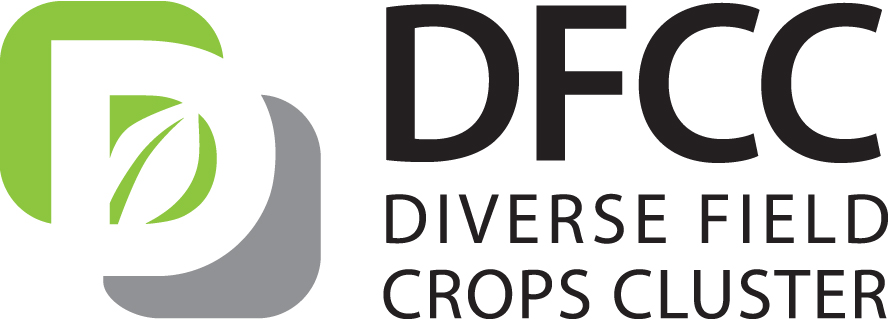A hemp meal for dairy cows
As a dairy cow nutritionist, Kees Plaizier focuses on preventing metabolic diseases and enhancing how high-producing dairy cows utilize nutrients. These cows have sizeable nutrient requirements to enable them to produce and sustain large milk yields. Protein intake is especially important and is incorporated into their diet through feed supplements.
Plaizier, a University of Manitoba researcher, is working on a Diverse Field Crops Cluster (DFCC) project to investigate the use of hemp meal as a protein supplement in dairy cow diets. Hemp products are not currently approved by the Canadian Food Inspection Agency (CFIA) for use as livestock feed. The goal of this research is to gather the data necessary to gain regulatory approval which will open the livestock feed market to hemp meal.
Lab research has been completed to find hemp by-products that are good candidates for animal feeds. For this work, Plaizier emphasizes the benefits of cooperation between DFCC activities. He says the three hemp activities are not totally independent; rather, several researchers are focusing on different aspects of the crop to inform the grander goal of supporting hemp production.
“There is quite a lot of collaboration between researchers. Other partners have done a screening of hemp products and have identified hemp seed meal as one of several products showing promise,” he says.
Plaizier just wrapped up the first round of animal trials as part of the feeding trial for the Canadian hemp industry. He discovered that dairy cows accepted the taste of the meal.
“I was a bit concerned that maybe cows wouldn’t eat so much of the hemp seed meal because it tastes different than canola meal and soybean meal but no, they ate it fine after getting used to it. So, that’s a very positive development,” he says.
To compare the nutritional profile of hemp seed meal to the feeds currently used to supplement the diets of livestock, the cows are divided into three dietary groups. One group is given a diet containing 15 per cent hemp meal, the second group is fed 15 per cent canola meal, and the third is fed a blended diet comprising half hemp and half canola meal. Plaizier and his team determine intake requirements, look at indicators of metabolism – like glucose and nitrogen levels in blood – and analyze the digestibility of the feed.
At the end of the feeding trial, tissue samples (including muscle, meat, and fat) will be tested to ensure that there is no unacceptable level of cannabinoid residue left behind.
The hemp varieties grown in Canada have low cannabinoid content. Plaizier expects that there will not be any cannabinoid residue but says that the research is needed to get the stamp of approval for hemp seed meal and other potential hemp feed ingredients. A comprehensive research model is necessary to ensure food products approved by CFIA safe for consumer consumption are top quality. Follow-up trials will be looking at milk production efficiency in a large sample size from a farm-like scenario.
The introduction of hemp seed meal into the livestock feed market will benefit both hemp famers who will be able to maximize the potential of the crop and livestock producers who will have access to a new, high quality, cost efficient protein supplement.
Written by Erin Matthews
____________________
This DFCC activity is led by the Canadian Hemp Trade Alliance with funding from Agriculture and Agri-Food Canada’s Canadian Agricultural Partnership program, the Canadian Hemp Trade Alliance, Government of Alberta, and Dairy Farmers of Manitoba.
The Diverse Field Crops Cluster (DFCC) is a unique alliance of industry partners: Canadian Hemp Trade Alliance, Canary Seed Development Commission of Saskatchewan, Saskatchewan Flax Development Commission, Smart Earth Camelina Corporation, Manitoba Crop Alliance, Mustard 21 Canada Inc, and Northern Quinoa Production Corporation. DFCC aligns industry and research stakeholders to seize market opportunities and accelerate the acreage and market returns of special crops. Ag-West Bio leads this five-year research cluster which is funded by Agriculture and Agri-Food Canada’s Canadian Agricultural Partnership program and industry partners.

